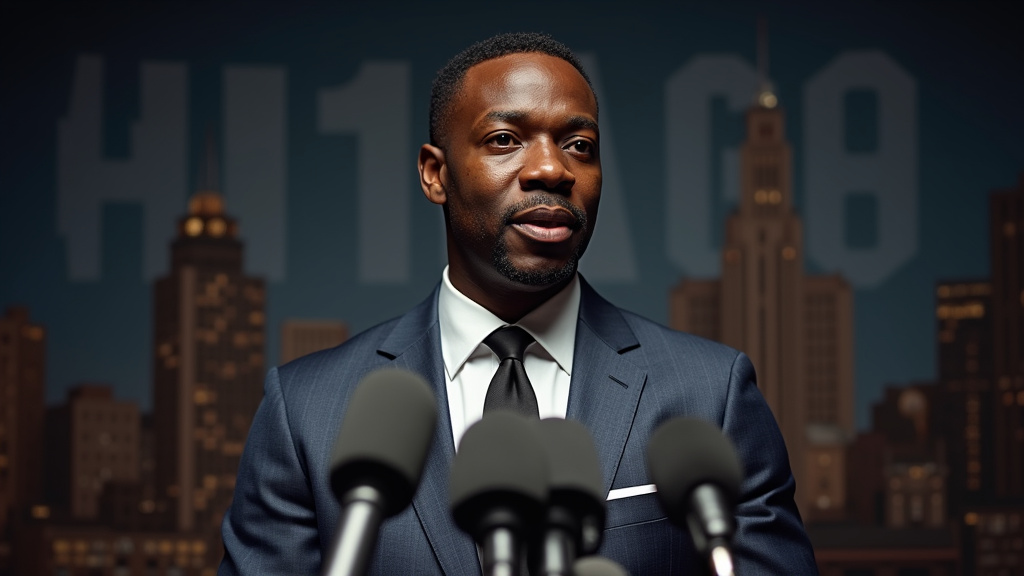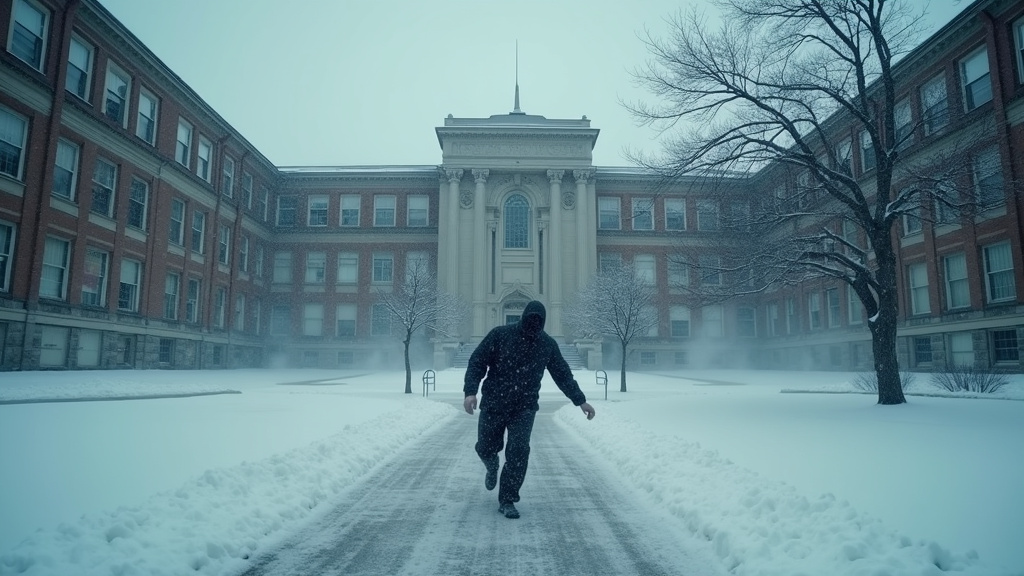CHICAGO – In a stark clash over federal authority and urban safety, Chicago Mayor Brandon Johnson has forcefully rejected President Donald Trump’s implied threat to deploy National Guard troops to the city. Johnson, joined by Illinois Governor JB Pritzker, has decried the potential federal intervention as unconstitutional, unnecessary, and politically motivated, asserting that Chicago is making significant progress in combating crime.
Trump Escalates Federal Intervention Rhetoric
President Trump, following his deployment of National Guard and federal agents to Washington D.C., has increasingly targeted major American cities with rhetoric about expanding his federal crackdown on crime and immigration. He explicitly named Chicago as the next likely target, characterizing the city as a “mess” run by an “incompetent mayor.” Reports from the Pentagon indicate weeks of planning for a potential deployment of several thousand National Guard members to Chicago as early as September, signaling a serious consideration of unilateral federal action. Trump also extended similar threats to New York and Baltimore, continuing a pattern of engaging with Democratic-led municipalities.
Mayor Johnson’s Vehement Rejection
Mayor Johnson’s office immediately released a strong statement condemning Trump’s remarks. The mayor labeled the proposed deployment “unconstitutional,” “uncoordinated, uncalled for, and unsound.” He emphasized that while the city takes such statements seriously, no formal communication from the federal administration has been received. Johnson argued that deploying the National Guard could “inflame tensions between residents and law enforcement” and undermine the “historic progress” Chicago has achieved. Citing city data, Johnson highlighted substantial year-over-year reductions in violent crime, including a decrease of over 30% in homicides, 35% in robberies, and nearly 40% in shootings within the past year. He stated that the National Guard cannot address the city’s core issues like housing or education and vowed that Chicago would “evaluate all of our legal options to protect the people of Chicago from unconstitutional federal overreach.”
Governor Pritzker Aligns with Mayor on Opposition
Illinois Governor JB Pritzker lent his full support to Mayor Johnson’s stance, characterizing Trump’s actions as an “abuse of power” and an attempt to “manufacture a crisis.” Pritzker explicitly stated that the State of Illinois has received no requests for federal assistance and has made none, asserting that “there is no emergency that warrants the President of the United States federalizing the Illinois National Guard, deploying the National Guard from other states, or sending active duty military within our own borders.” He pledged to uphold state sovereignty and protect Illinois residents, criticizing the president for politicizing service members and distracting from domestic issues.
Crime Trends and Legal Challenges
Mayor Johnson’s defense rests heavily on recent crime statistics that show a marked decline in several categories of violent crime. Reports indicate that homicides have dropped significantly, with some data suggesting declines of up to 40% in shooting victims compared to the previous year. This optimistic trend, mirroring national patterns, is attributed by city leaders to investments in community safety, violence prevention, and constitutional policing. However, some analyses also point to increases in specific crimes, such as aggravated assaults reaching a 20-year high in 2024. Critics also point to Trump’s history of cutting federal funding for violence prevention programs, questioning the sincerity of his commitment to urban safety. Legally, the president’s ability to unilaterally deploy the National Guard to a state without the governor’s consent is highly restricted by federal law and constitutional precedent, which typically reserves such authority for state governors or in cases of national emergency or rebellion. Legal experts anticipate any such move would face immediate court challenges, potentially escalating into a significant constitutional battle.
Political Showdown Looms
The current standoff reflects a broader political narrative, with Trump frequently targeting Democratic-led cities and mayors. Critics argue that these threats are not about genuine public safety but serve as a political strategy to energize his base and create distractions. Leaders like House Minority Leader Hakeem Jeffries have condemned the idea as an attempt to “manufacture a crisis” and a “flagrant violation of the Constitution.” The situation highlights a growing tension between federal executive power and states’ rights in domestic law enforcement, making Chicago a focal point in this ongoing NEWS cycle.














